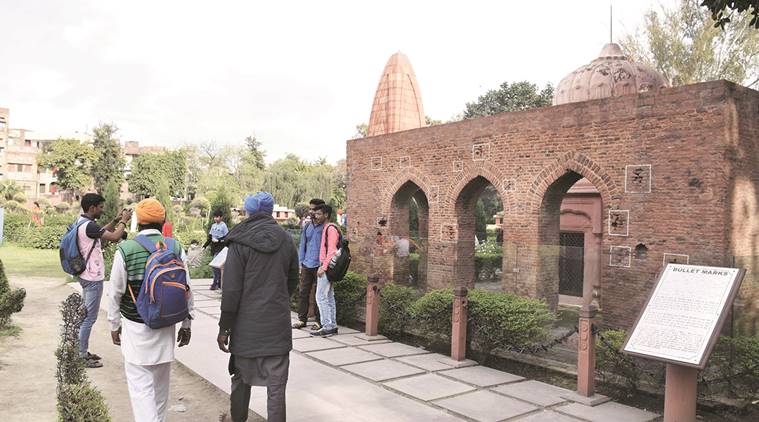
In events leading up to the Jallianwala Bagh massacre on April 13, 1919, there was an exceptional display of communal harmony during Ram Navmi celebrations in the city on April 9 that year that didn’t go down well with the British rulers. In times when public places had separate drinking-water pitchers labelled ‘Hindu water’ and ‘Muslim water’, two local leaders — Dr Satpal and Saifuddin Kitchlew — brought the two communities together to drink water from the same utensil.
The act, which was meant to expose the divide and rule policy of the British, angered the city’s then Deputy Commissioner Miles Irving, who ordered the arrest of Dr Satpal and Kitchlew. Both leaders were sent to Dharamshala the very next day on April 10, 1919. The arrest of two leaders proved to be a turning point in the protests against the Rowlatt Act in the city, as the agitation soon turned violent.
Former state minister Darbari Lal said: “It was Dr Satpal and Kitchlew who made people of Amritsar realise that British were dividing them on the basis of their religion and if they can overcome religious differences then it would be very easy to defeat British. Ram Navami was used as an occation to display the communal harmony and it really had the British worried. Peaceful celebration of Ram Navmi by Hindus and Muslims of the city led to the Jallianwala Bagh massacre. Ram Navami celebrations were a dangerous development from the context of the British because there was a tradition of Hindu water and Muslim water during those days.”
Dr Satpal had no children, however, Saifuddin Kitchlew had three daughters and two sons. All three daughters were married in Lahore of now Pakistan before partition.
A 100 years later as the Jallianwala Bagh Memorial Trust has sent a half-hearted invitation to Huma Dar, niece of Kitchlew for the Jallianwala Bagh anniversary. She is based in US, and is unlikely to make it for the event on April 13.
“We had only this address of any member of the Kitchlew’s family. I posted the invitation to her two days back,” said Trust secretary Sukumar Mukhrjee on Monday.
Darbari Lal added, “Kitchlew suffered a lot during the Partition and his house in Amritsar was burnt. Instead of going to Pakistan Kitchlew went to New Delhi and settled there. His both sons lived in poverty. His younger son, Talakh Kitchlew, had come to Amritsar in the 80s and we had helped him financially. His second son, Toufique Kitchlew, was also not in good financial condition. He wrote a book on his father in 1999 and he came to me in 2003 to gift the book. Later, he also wrote a letter to me to make effort to so that his book on his father can become part of school syllabus in Punjab.”
Mukhrjee said: “Before Toufique Kitchlew’s death, we invited him once to Jallianwala Bagh for a function. It was back in 90s, when I was sitting in the Bagh, daughters of Kitchlew came to see me as tourists. They told me that Saifuddin Kitchlew was their father as they saw his picture of in the gallery at Jallianwala Bagh.” Toufique Kitchlew had no children.
Amritsar Deputy Commissioner Shivdular Singh Dhillon said he had no idea if invitations had been sent to any family member of Kitchlew, as the invites for the event were being sent by the central government.
“It was the 100th anniversary and they have been sent an invitation to Kitchlew family only two days back. It is an insult to Kitchlew. They should had been informed in advance and special arrangement was needed to ensure their presence at the Jallianwala Bagh anniversary function. It is half-hearted invitation. Just a formality,” said Darbari Lal.